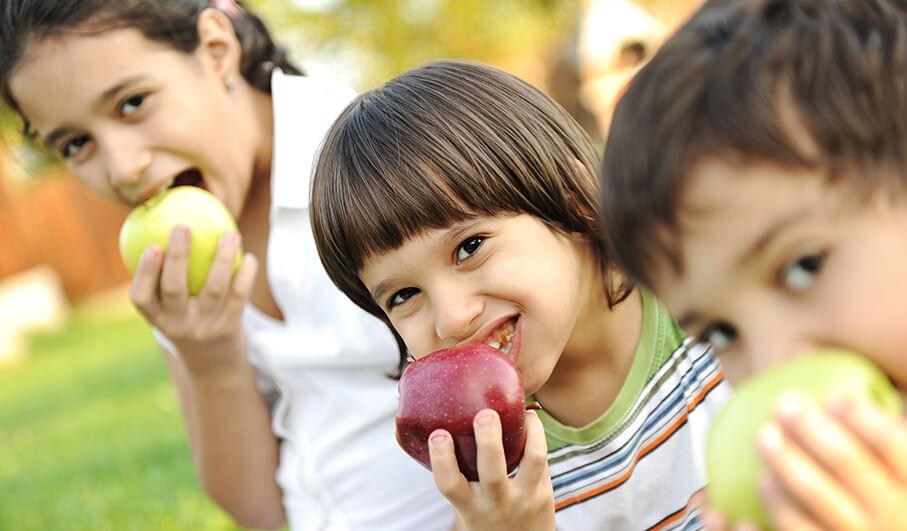Help Your Hyperactive Child with Healthy Nutrition

Where do kids get their boundless energy from, you probably wonder every day, when you see a room in shambles minutes after you’ve cleaned it up. When your child runs through the mall and you barely manage to keep up. When you’re ready to call it a night at their bedtime, but they’re still raring to go.
There’s a fine line between a naturally active child and one who’s hyperactive. For this reason, it’s important to pay close attention to unusually disruptive or unruly behavior.
For instance, is your child hyperactive at certain times of the day?
Kids’ hyperactivity may be linked to such factors as:
- Too much caffeine from colas and teas (remember that children have a lower body weight, so the amount of caffeine in relation to their body weight can strongly affect them)
- Too much sugar
- Missing lunch, or replacing lunch with candies and sweets
- Desire for attention
- Boredom
- Lack of sleep, crankiness (their day is not well-structured)
- Over-stimulation (being with a group of friends who are hyperactive, or watching a loud action movie)
- Too much television or computer games
- Lack of exercise
- Consumption of unhealthy snacks.
There are ways to help your children harness their abundant energy and gain more control over their impulses. A good place to start can be their diet.
What are the kinds of food that are recommended for hyperactive children?
- Ensure they get their maximum nutrition from the 5 food groups which include grains and starches, vegetables, fruits, milk and dairy products, and meats and beans.
- Dietary studies show that hyperactive children eat more sugar than other children. So, cut down or limit sugary foods.
- Avoid giving your child sweets as a regular reward.
- Limit their caffeine intake in the form of fizzy drinks or excess teas
- Increase Omega-3 in their diet (eggs, nuts, beans enriched dairy food, canola oil) as it’s found to have a calming effect on children.
- Increase their intake of vitamins and minerals through whole grain food and especially fruits and vegetables.












 Expert Opinion
Expert Opinion


 Healthy Bodies & Minds
Healthy Bodies & Minds